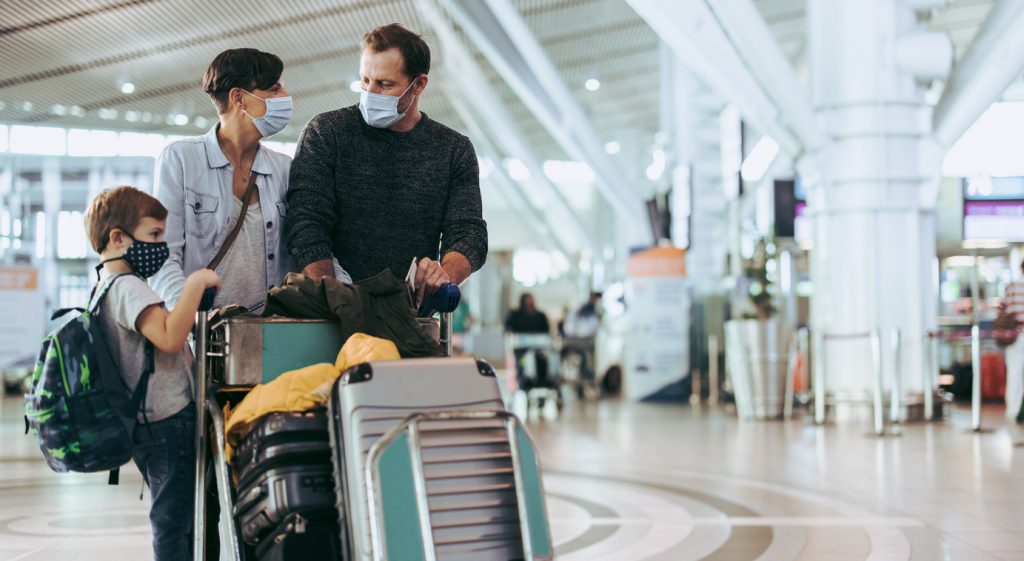3 common travel bugs and what to do about them
Travelling can be a wonderful way to relax and find adventure, but that fun can be quickly ruined if you get sick. Being aware of the common travel bugs you may encounter when travelling overseas – as well as what you can do about them – can help ensure your next holiday is enjoyable and bug-free.
Researching your destination before you go can help you to find out what the common health risks are and how you can best prepare, where possible. Some destinations may require you to have vaccinations before you go – sometimes up to eight weeks before your travel date.
It’s also important to check with your doctor if any extra precautions are needed if you’re pregnant.
There are three main ways you can catch a bug while you’re travelling:
1. From food or water
2. From insects
3. From human contact or droplets.

1. Food or water-borne diseases
This is probably the most commonly contracted disease group by Australian travellers.
You can easily take in bacteria by:
· Drinking contaminated water (including tap water)
· Drinking something with ice cubes made from tap water
· Brushing your teeth or washing your face with tap water
· Eating food prepared with poor hygiene or washed with tap water
· Swimming in contaminated water.
Diseases caught in this manner include:
· Gastroenteritis (vomiting and/or diarrhoea)
· Hepatitis A
· Giardia
· Polio
· Typhoid
· Cholera.
You can reduce your risk of contracting food and water-borne diseases overseas by taking extra care, including:
· Using bottled water to drink, wash your face and brush your teeth
· Wash your hands thoroughly and regularly
· Avoiding ice cubes in bars and restaurants
· Avoiding raw vegetables and salads
· Only eat fruit you can peel
· Avoiding undercooked food or food that has been sitting for some time
· Avoid contact with water or soil that could be contaminated with sewage.

2. Insect-borne diseases
You’re more likely to come across diseases carried by insects in tropical climates such as Asia, Africa, Central America and in the Pacific.
Insect-borne diseases include:
· Yellow fever (you’ll need a vaccination if you’re travelling to countries known to have yellow fever)
· Malaria
· Dengue fever
· Chikungunya
· Zika virus
· Lyme disease
· Japanese encephalitis.
You can reduce your risk of being exposed to insect-borne disease by:
· Using insect repellent (over the top of sunscreen if you’ll be in the sun)
· Covering up with clothing where possible
· Spraying your clothing with insect repellent
· Keeping windows closed unless they have screens

3. Contact/droplet-borne diseases
The risk of contracting viruses doesn’t go away just because you’re on holiday. Some diseases you may catch from droplets in the air include:
· COVID-19
· Common cold or flu
· Measles
· Monkeypox
· Pneumonia
· Chicken pox
· Tuberculosis
· Severe acute respiratory syndrome (SARS).
You can reduce your risk of catching droplet-borne diseases by staying up to date with your vaccinations, and practising good hygiene, such as washing your hands and using hand sanitiser. You may also wish to wear a mask in crowded public places.
You can speak to an InstantScripts doctor seven days a week for a telehealth consultation prior to your departure overseas. Or, if you are travelling locally and need a doctor, we are available seven days a week from all around Australia.
To speak with an InstantScripts Doctor:
Request a ConsultationIf you have run out of your script:
Request a ScriptThis article was written by Carolyn Tate, a Brisbane-based writer with a particular interest in women’s health, mental health and living well. Carolyn holds a Bachelor of Professional Writing and a Bachelor of Political Science.
© InstantScripts
Level 8 / 637 Flinders St.,
Docklands VIC 3008

